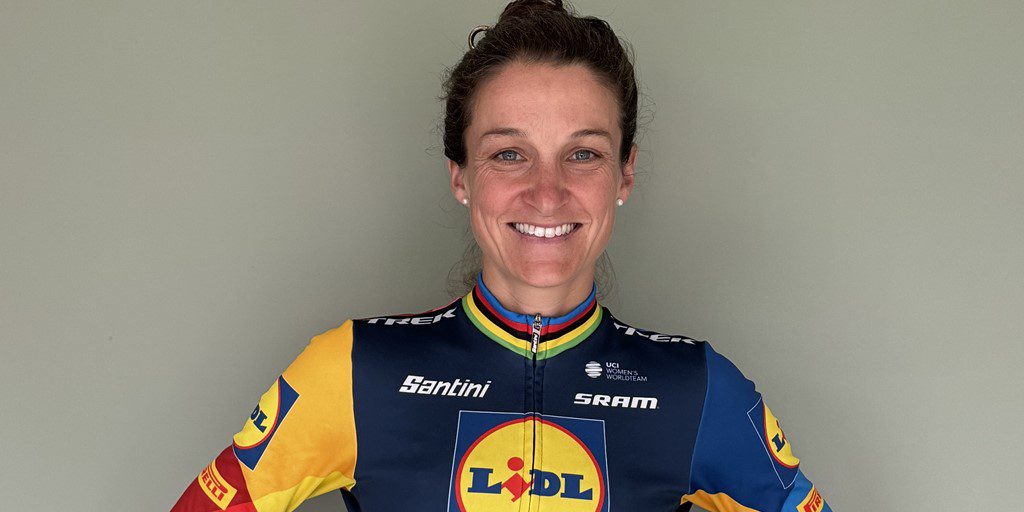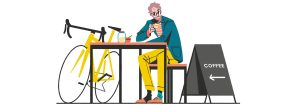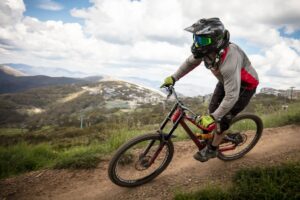Lizzie Deignan on competing at the Paris Olympics

The Paris Olympic Games saw more than 10,000 athletes from 184 countries compete for the coveted medals over a two-week period. One of the athletes, Lizzie Deignan, shared with us her experience at this year’s Games.
Cycleplan ambassador Lizzie Deignan is an Olympic silver medallist (London 2012), a World Champion track and road cyclist, and the first female British cyclist to have competed at four Olympic Games. Take a look at our exclusive interview with Lizzie below.
Exclusive interview: Lizzie Deignan on her experience competing at the Paris Olympic Games
What did your Olympic training regime look like?
My Olympic training regime is different to most races. In cycling, there is a lot of racing, so it is hard to taper your training for every race as you would lose fitness. However, the Olympics is the biggest event on the calendar, along with the World Championships, so I took it pretty easy in the week building up to it, doing around 50% of the volume that I would usually do to ensure I was in good shape coming into the race.
Did you train or prepare any differently for the Olympics than you would for other competitions?
We travelled to Paris a week before the event when normally, I would travel just a couple of days before. This was mainly to make sure we were there in time to deal with any extra pressures and stresses that come with the Olympic Games, such as collecting accreditation. We also had time for a recon of the city circuit, which was great, and doesn’t normally happen for other events. There are quite a few similarities to other races we do, but with a few extra details added in due to the race being on such a global stage.
You were part of the leading group for a good portion of the road race. What was going through your mind at this point?
I was in the front group along with two other teammates from the GB team, Anna Henderson and Pfeiffer Georgi, so we had a really good position. I just wanted to be as aggressive as possible, as it was really important that we established the breakaway. I was in the front to make sure the group behind didn’t come back and we could maintain a numerical advantage.
Knowing this was to be your final Games, was your mindset any different than in previous years?
As it was my final Olympic Games, I really wanted to embrace the experience and enjoy it, and I think I managed that! It’s not always easy, as it is a real pressure cooker. I really enjoyed the crowds, particularly on the city circuit in Paris, as the streets were extremely busy, and we don’t get to experience that all the time. It fondly reminded me of London 2012.
You had to spend time in hospital just 10 days before the race. Did this change your approach on the day?
The final build-up to the Games was not ideal as I had to recover from Covid and spend some time in hospital just 10 days before the race—so it definitely changed my mindset. I really felt like I had nothing to lose, and everything to gain. It also meant that of the three of us (GB riders) in the breakaway, I felt that the responsibility to do some of the extra work was on me.
Although you’re competing for individual medals, do you and the other GB cyclists often work together in the road race?
Cycling is a team sport, and it’s strange that only one person gets to stand on the podium, but I always find it really easy to be a good teammate.
What would your advice be to an aspiring Olympic cyclist in regard to their training?
My main piece of advice would be for a cyclist to get a coach. You need somebody who can give you their experience and guidance because to reach the top level in any sport, you really do need professional direction.
Did you watch any other sports whilst you were at the Games? What did you watch?
We were in a hotel together with all the other GB cyclists and we had a common room withTVs showing all the other sports and events. I remember watching the BMX final with Beth Shriever, in particular, and it was so cool to be able to all watch together and get excited about our upcoming events.
Do you get to know any of the other athletes whilst you’re there from other sports and countries?
It can be tricky getting to know people competing for other countries as we usually stay together in our teams in the hotel. However, we spent a lot of time with the men’s road team which was fun and not something we normally get to do. I was able to catch up with some of my road racing teammates from Lidl-Trek on the recon day—so just cyclists really!
What do you and the GB team usually do on the days you aren’t competing?
We usually train, but because we were tapering, we didn’t do any rides longer than 3 hours. We would then have a massage and any treatment we needed from the physios before meeting to discuss tactics. This is also when we would have time to look at the course to ensure we were on top of all the details before the race. Other than that, we just spent time with each other, watched the other sports, and enjoyed each other’s company—as well as trying to relax as much as possible, of course!
More from Lizzie Deignan:
Cycleplan is in no way associated with the Olympic Games or the IOC.
Please note the information provided on this page should not be taken as advice and has been written as a matter of opinion. For more on insurance cover and policy wording, see our homepage.






